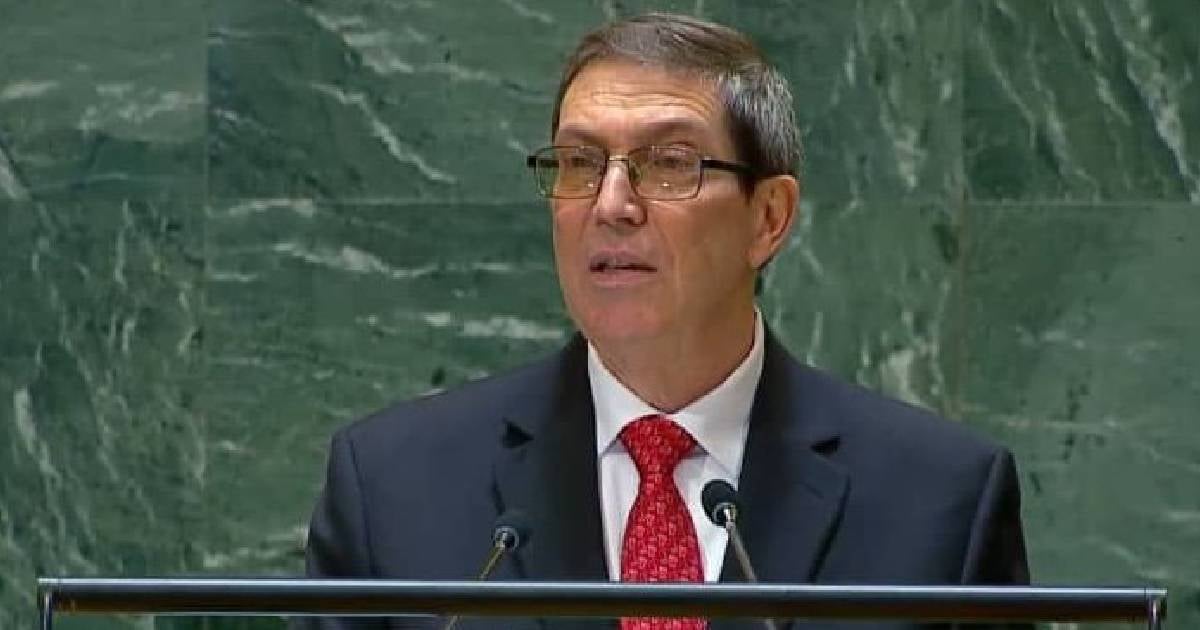As Cuban Foreign Minister Bruno Rodríguez criticizes the conditions faced by Cuban migrants in U.S. detention centers through his official account on X, thousands of prisoners in Cuba endure torture, medical neglect, and inhumane conditions within the regime's own jails. "Anti-Cuban politicians in South Florida attempt to ignore the dire circumstances of migrants in detention facilities. They divert attention from their responsibility in the U.S. government's anti-immigrant policies that affect Cuban families," Rodríguez stated.
This stark contrast between his words and the reality on the island has sparked outrage. Activists, journalists, and families of prisoners argue that while the government seeks to polish its reputation before international bodies like the United Nations (UN), repression and neglect are rampant in Cuban prisons.
UN Hypocrisy vs. Prison Reality
Last Friday, Cuba's diplomatic mission to the UN claimed the island showcased "good practices" in the treatment of detainees during the anniversary of the Mandela Rules. The government boasted about ensuring "human dignity, social reintegration, access to education, work, and culture" in its penitentiaries.
However, the reaction from within and outside the country was swift. "An absolute and total disrespect," said journalist José Raúl Gallego about the official statement. "Let the former political prisoners, the families of the detained, or anyone who has been through a Cuban jail tell you otherwise."
The Mandela Rules, adopted by the UN, demand humane treatment for prisoners: no torture, medical access, family visits, legal defense, and no discrimination. Yet, the Cuban reality consistently violates these standards. From 2022 to 2024 alone, at least 56 individuals died in custody in Cuba, according to the non-governmental organization Cubalex. Many perished due to lack of medical care or institutional violence. In 2024, the Cuban Observatory for Human Rights reported over 40 similar deaths in island prisons.
Cases like Inoel Rodríguez, who was brutally beaten by guards at Ariza prison, and Jorge Luis Torres Vaillant, who died of malnutrition in Santiago de Cuba, reveal a pattern of abuse, neglect, and torture that starkly contradicts the official narrative.
A Cry for Help from the U.S.
Rodríguez took advantage of a news story from early June, where detained Cuban immigrants at the Krome Processing Center in Florida spelled out "SOS" with their bodies and shirts, alongside the words "Cuba" and "Libre," a desperate plea over their conditions.
The facility holds over 1,700 people in a space meant for 600, as reported by Thomas Kennedy from the Florida Immigrant Coalition. Cells designed for 12 are crammed with up to 40 individuals.
Although ICE claims to ensure "safe and humane" conditions, a Miami Herald report revealed four deaths in custody in Florida between December and April. Among the deceased were a Ukrainian immigrant who suffered a stroke without timely aid and a young Honduran incorrectly medicated, leading to untreated psychiatric complications and death.
Congresswoman Debbie Wasserman Schultz visited the center, describing it as inhumane and overcrowded, with detainees lacking criminal backgrounds or due legal process.
The Contradictions of Havana's Discourse
The Cuban regime's narrative, now expressing concern over its nationals detained in the U.S., sharply contrasts with the neglect it inflicts on Cubans within its borders. While government bodies criticize Washington's "anti-immigrant" policies, they remain silent on the inhumane policies enforced in their own prisons. They speak of "dignity" in international forums but punish dissenters with starvation, imprisonment, and death.
The "SOS Cuba Libre" cry from Krome not only challenges U.S. authorities but also condemns a system that punishes freedom within the island and uses the suffering of its migrants as a political weapon abroad.
FAQs on Cuban Prison Conditions and Migrant Issues
What are the reported conditions in Cuban prisons?
Cuban prisons are reported to have inhumane conditions, including torture, medical neglect, and overcrowding. Reports indicate that prisoners suffer from lack of medical care and violence.
How does the Cuban government portray its treatment of prisoners internationally?
Internationally, the Cuban government claims to uphold human dignity and offer social reintegration, education, and work opportunities in their prisons, which contrasts starkly with reports from within the country.
What sparked the SOS message at the Krome Processing Center?
Detained Cuban migrants at Krome spelled out "SOS" with their bodies and shirts to highlight the overcrowded and poor conditions they faced, making a desperate plea for help.
